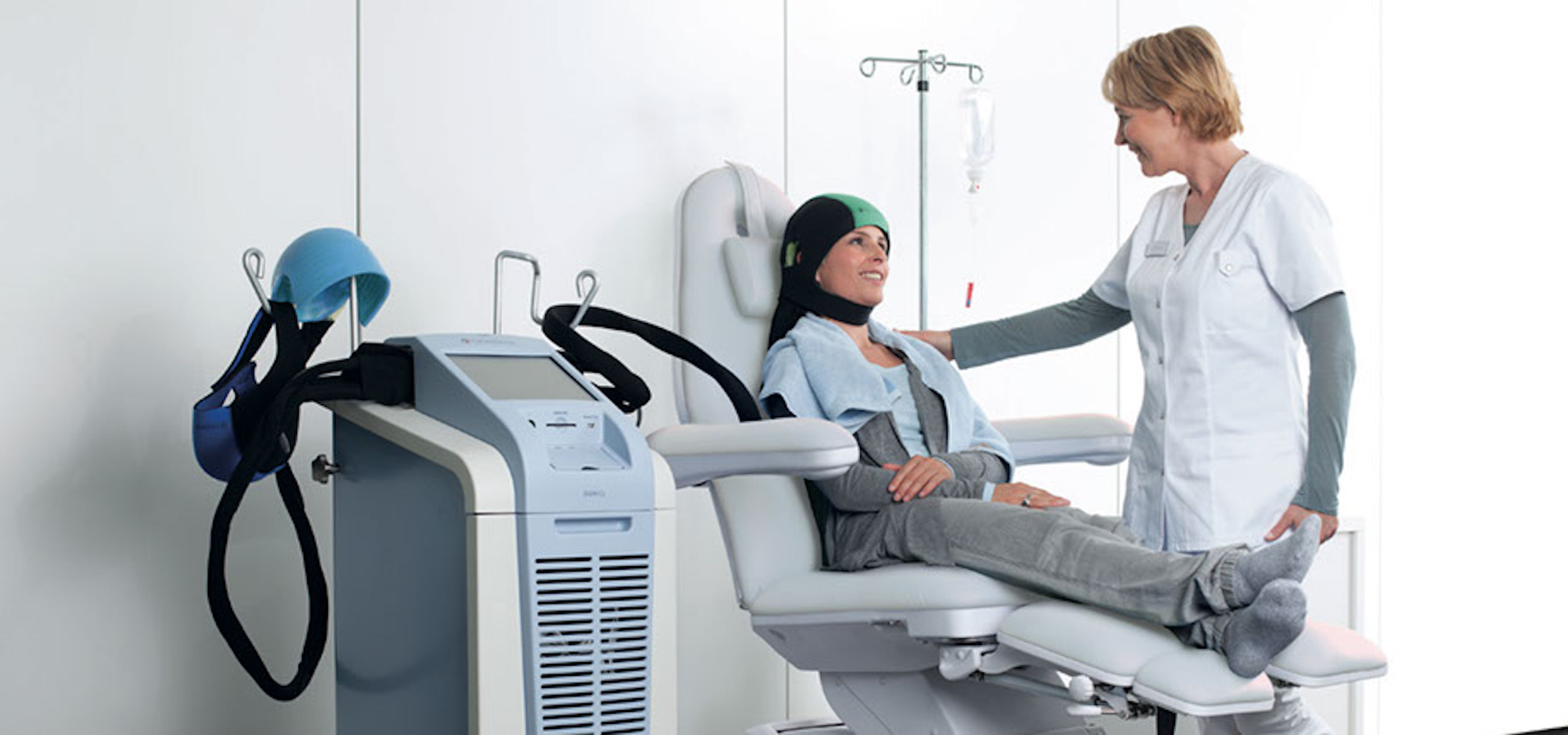About 650,000 people receive chemotherapy in the United States every year. For many cancer patients, their diagnosis is quickly followed by the realization that they can lose their hair during treatment — but that's changing with cooling cap technology.
Doctors are preventing hair loss during chemotherapy with the DigniCap Scalp Cooling System. The tight-fitting silicone cooling cap, manufactured by Sweden-based Dignitana, connects to a control unit while a liquid coolant circulates near-freezing temperatures around the scalp. The cold constricts the scalp’s blood vessels, decreases hair root activity and prevents toxic chemotherapy from harming hair follicles.
Saving Hair While Saving Lives
DigniCap originally received clearance from the U.S. Food and Drug Administration (FDA) in late 2015 as the first scalp cooling device to be used for women with breast cancer. In July 2017, the FDA cleared expanded use of the DigniCap Cooling System to include other solid tumor cancers. The technology is now helping hundreds of patients per month at more than 80 clinical sites across 21 states in the U.S.
“We are pleased to expand the use of this product for cancer patients with solid tumors to potentially minimize chemotherapy-induced hair loss,” Binita Ashar, M.D., director, Division of Surgical Devices, in the FDA’s Center for Devices and Radiological Health, said in a statement. “Managing the side effects of chemotherapy is a critical component to overall health and quality of life.”
The expanded FDA clearance allows oncologists and surgeons treating cancer patients with solid tumors such as breast, prostate, ovarian, uterine, lunch and other tissues to consider using scalp cooling treatments with patients undergoing chemotherapy.
“Scalp cooling is recognized around the world as a safe and effective therapeutic solution to one of the most traumatic side effects of chemotherapy,” said Johan Ericsson, chief executive officer of Dignitana AB. “Dignitana takes great pride in our ability to lead the way and remain at the cutting edge of technological developments that provide a transformative quality of life experience for people coping with a cancer diagnosis. This FDA decision allows us to help even more patients in the U.S. as they navigate life with the disease.”
Building Confidence and Hope
Some women wear hats and scarves to hide their balding head during chemotherapy. There are even hair donation organizations, such as Locks of Love, Pantene Beautiful Lengths and Wigs for Kids, that create wigs for cancer patients who lose their hair.
A head full of hair is part of a part of a person’s unique identity, and losing it can greatly contribute to the traumatic experience of battling cancer. Many women who have used DigniCap say keeping their hair helped them maintain a sense of normalcy while receiving treatment.
Breast cancer survivor Deborah shared her experience with DigniCap on YouTube.
“I tried to be brave about losing my hair but in reality it was a bigger deal than I initially thought it would be,” she said. Fortunately she was able to use the cooling cap to prevent hair loss.
The identity of being a cancer patient is always with you when people see you losing your hair, she said. It’s a constant reminder of the battle to get healthy again. Having hair throughout treatment boosted her self-esteem and improved her well-being.
“I looked in the mirror and I saw me,” she said.
Another chemotherapy patient, Christine, also said keeping her hair helped her stay positive during six rounds of chemotherapy. She didn’t have to look in the mirror every morning to see a “chemotherapy patient.” She wanted to see herself as she always has – not a sick person.
“Having it is changing people’s lives and has the potential of helping support people during the toughest time of their lives,” she said.
Fighting cancer is a journey, but DigniCap creates hope in the toughest of times.
“I feel normal. I feel good,” she said. “It gave me hope.”

